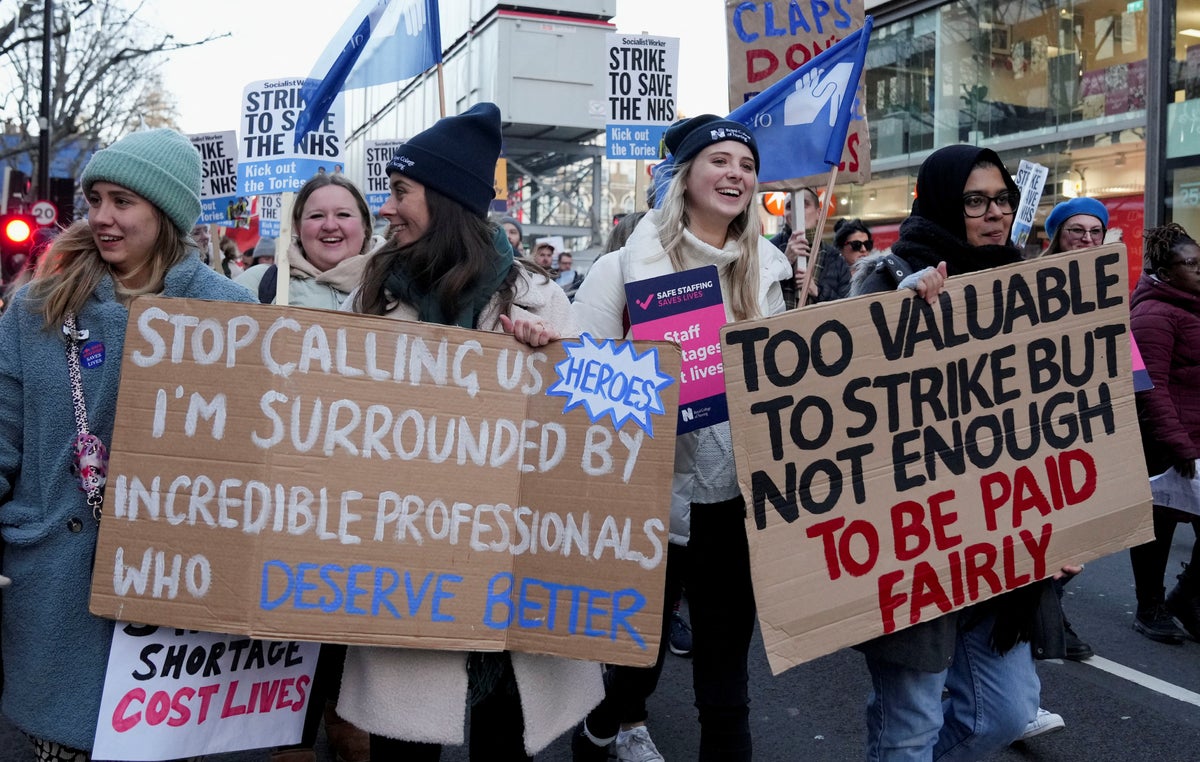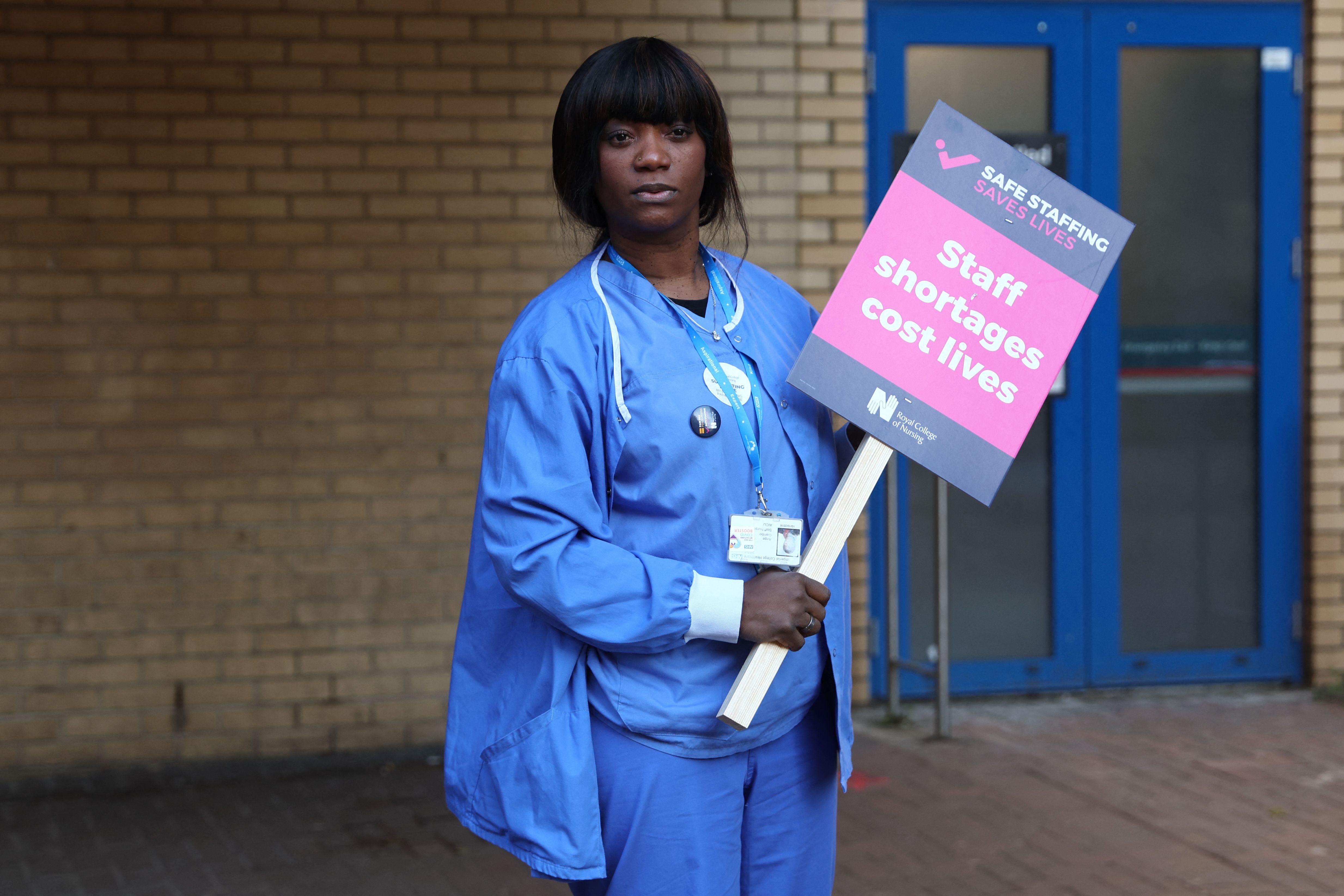
The Royal College of Nursing union has warned it will announce fresh strikes for next month, with twice as many staff expected to join the industrial action unless its pay dispute is resolved.
Double the number of nurses will be asked to join picket lines in early February in an attempt to increase pressure on the government, union leaders have warned.
The Royal College of Nursing says if progress is not made in negotiations by the end of this month, the next set of strikes will include all eligible members in England for the first time.
Ministers are pushing for new laws requiring minimum levels of service on strike days – legislation that is expected to take around six months to pass through parliament.
Royal College of Nursing (RCN) general secretary Pat Cullen described the prime minister’s position in their negotiation deadlock as “baffling, reckless and politically ill-considered”.
Nursing staff from more than 70 NHS trusts in England are set to take industrial action on Wednesday and Thursday next week.
The RCN is calling for a pay rise of 5 per cent above RPI inflation, currently 14 per cent.
Health secretary Steve Barclay has privately conceded that he will have to offer a higher pay rise to NHS staff.
The RCN said the next strike was likely to be on Monday 6 February, to coincide with the 10th anniversary of the Robert Francis inquiry into the Mid Staffordshire NHS Trust and the effect of nurse shortages on patient mortality.
The inquiry uncovered the neglect of hundreds of patients at Stafford Hospital between 2005 and 2009, with accounts of some elderly people being left lying in their own urine, unable to eat, drink or take essential medication.
Mr Francis and the Patient Association’s chief executive, Rachel Power, described the current stress on the NHS and excess death levels as “Mid Staffs playing out on a national level, if not worse” in a letter to the health secretary sent last week.
The strikes are heaping extra pressure on a health service already in crisis, having to deal with backlogs caused by the pandemic, patients being forced to wait in queued ambulances and staff shortages caused by record numbers of employees quitting.

Nurses in Wales are also expected to strike next month after avoiding industrial action this month.
Ms Cullen said: “The prime minister gave nursing staff a little optimism that he was beginning to move, but seven days later he appears entirely uninterested in finding a way to stop this.
“The public supports nurses because of just how much nurses give to the public. Rishi Sunak’s intransigence is baffling, reckless and politically ill-considered.
“Nursing staff just wanted to be valued and recognised. Without, they will keep leaving in record numbers with consequences for patients that Robert Francis documented in painful detail.
“The nurse shortage costs lives – Sunak cannot put a price on a safe NHS.”
The government says the RCN’s demands are unaffordable but it wants to have an honest conversation with unions, including the RCN, about what is affordable in pay settlements.
A spokesperson has previously said: “We have accepted the recommendations of the independent NHS Pay Review Body in full and have given over 1 million NHS workers a pay rise of at least £1,400 this year.
“This is on top of a 3 per cent pay increase last year when public sector pay was frozen and wider government support with the cost of living.”







